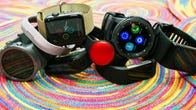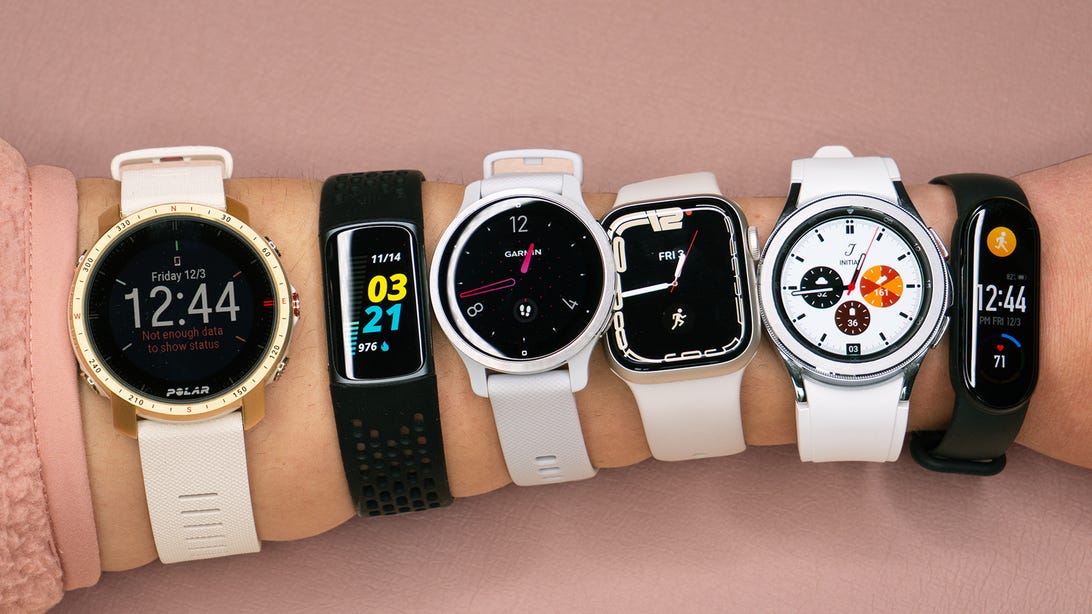
Lexy Savvides/CNET
Smartwatches have existed for years, but brands like Apple, Google, Samsung and Fitbit might have major changes in store for 2022. We could see a new type of Apple Watch designed for extreme sports, while Google could release its first consumer smartwatch. Fitbit, which Google owns, might introduce its first smartwatch powered by Google’s software instead of its own. That’s if the rumors and reports that have emerged so far turn out to be true.
A Pew Research Report from 2020 says one in five Americans use a smartwatch or fitness tracker, while Counterpoint Research’s data says the smartwatch industry grew by 24% year-over-year in 2021. With that in mind, it wouldn’t be surprising to see companies like Apple, Google, Samsung and others further their wearable tech ambitions this year.
Here’s a look at the most interesting rumored smartwatches we’re hoping to see this year.
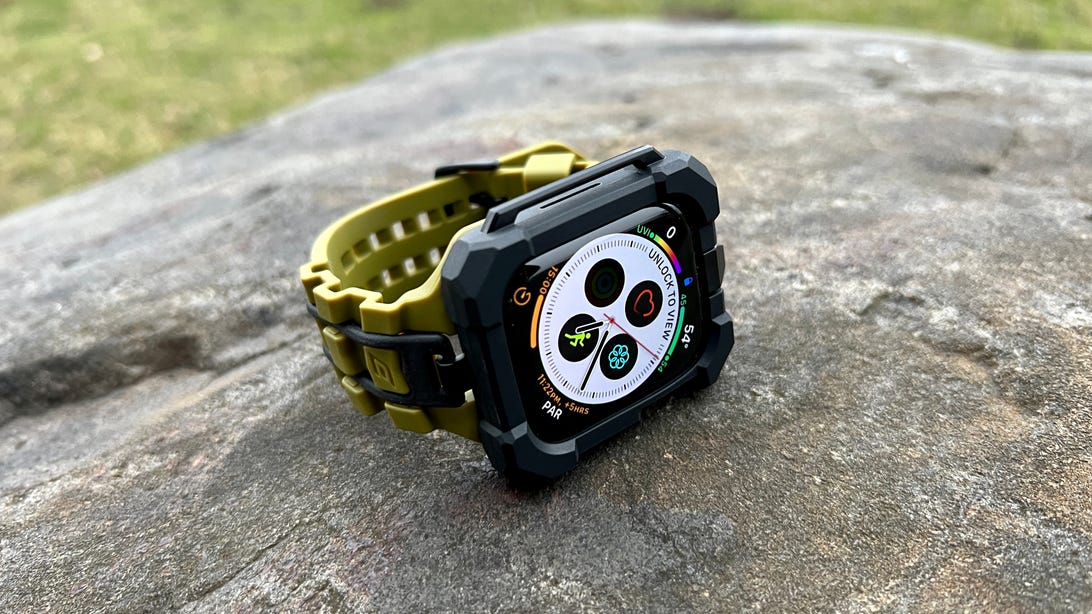
David Carnoy/CNET
Post Contents
Apple Watch Explorer Edition
Apple might add a new rugged to its smartwatch lineup this year known as the Explorer Edition, according to Bloomberg. This would be a more rugged version of the Apple Watch geared toward those who engage in outdoor activities and extreme sports, the report says. It’s expected to have the same functionality as Apple’s regular smartwatches, but with more impact protection similar to Casio’s G-Shock watches.
The watch is sometimes referred to as the “Explorer Edition” inside Apple, according to the report, but it’s unclear if the product would go by that name. Bloomberg previously said the new rugged Apple Watch could arrive in 2022, so there’s a chance we might see it during Apple’s annual fall product event. Apple already began taking a step in this direction by making the Apple Watch Series 7’s front crystal more durable.
I’m not the target audience for a watch like this, but I’m still excited to see what Apple’s take on the rugged smartwatch could look like. There’s an opportunity for Apple to reach more than just extreme athletes with a more durable smartwatch. A rugged Apple Watch could also be ideal for those with physically demanding occupations, such as construction workers, brick masons, landscapers and mechanics.
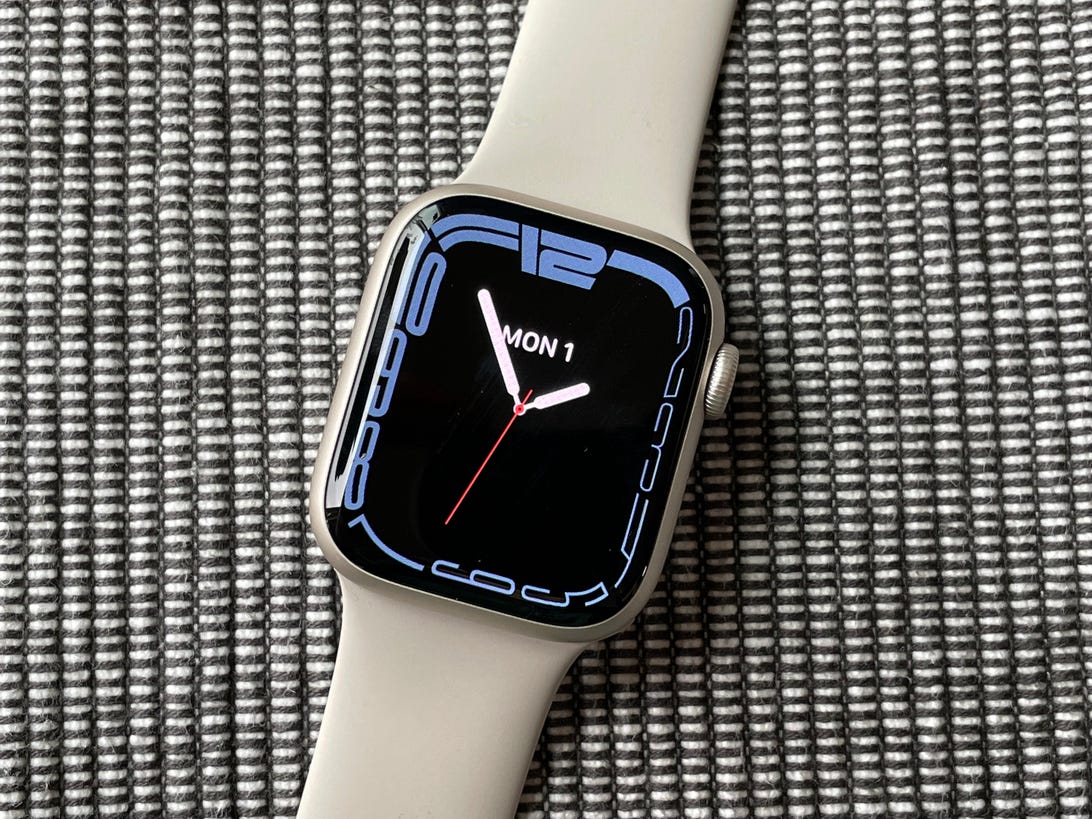
Lexy Savvides/CNET
Apple Watch Series 8
There’s also the Apple Watch Series 8, which is expected to debut this fall in typical Apple fashion. The biggest upgrade will likely be the addition of a body temperature sensor, according to Bloomberg and The Wall Street Journal. The thermometer might be designed to help wearers with fertility planning, reports from the Journal and Bloomberg indicate. Adding the ability to measure temperature would also help Apple catch up to other wellness trackers from Oura and Fitbit in this regard.
But Apple’s more significant health-tracking updates — like glucose and blood pressure monitoring — are still expected to be years away, according to the reports. Apple’s blood pressure monitoring technology likely won’t be ready for the Apple Watch until 2024 at the earliest, and Apple hasn’t even assigned a target launch window for blood sugar readings, according to a recent Bloomberg report. That makes me believe the Series 8 might be another incremental upgrade with processing and design improvements.
Still, I’m looking forward to learning how Apple would incorporate temperature sensing into the Apple Watch’s suite of health features, if at all. Otherwise, I’m hoping to see longer battery life, more detailed sleep tracking and metrics that focus on recovering from workouts in the next Apple Watch.
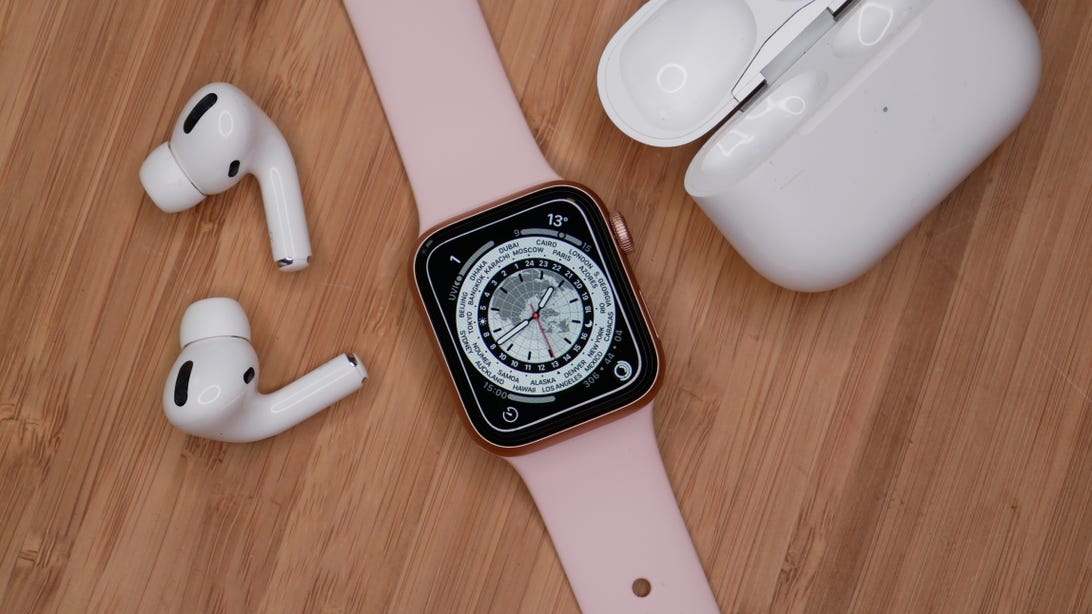
Lexy Savvides/CNET
Apple Watch SE 2
While the rumored Apple Watch Series 8 will likely demand much of the attention this fall, I’m personally more excited about a next-generation Apple Watch SE. The main differences between Apple’s flagship watches and the SE usually involve sophisticated health tracking features — such as blood oxygen saturation and the ability to take an ECG. But the Apple Watch SE still has most of the Apple Watch’s most important features for $120 less than the Series 7, making it feel like the right model for most people. Such features include activity tracking, fall detection, irregular heart rate notifications, Apple Pay support and iPhone notifications.
Apple hasn’t released a new Apple Watch SE since 2020, so I’m hoping to see an update this year. We don’t know much about what to expect from the next Apple Watch SE, but a June 2021 Bloomberg report said a new version may arrive later this year. Based on Apple’s previous releases, a newer processor, some design tweaks and new color options seem like plausible additions. But this is just speculation based on Apple’s previous launches.
The SE’s lower price means its functionality will be more limited than Apple’s next flagship watch. Aside from the absence of those health features mentioned above, the current SE also has a smaller screen than the Series 7, lacks an always-on display and doesn’t charge as quickly.
If Apple brings any of these features to the next-generation SE, I’m hoping it’s the always-on display. Having a screen capable of staying on even when the watch is idle makes the Apple Watch much more useful as a timepiece. It’s one of the few features I find myself missing in everyday use when switching between Apple’s high-end watch and the SE. Apple could still distinguish the Series 8 from the SE with its wider selection of health features and larger screen. Since Apple might discontinue the $199 Apple Watch Series 3 soon, a new SE would round out Apple’s lineup with a new budget-friendly option.
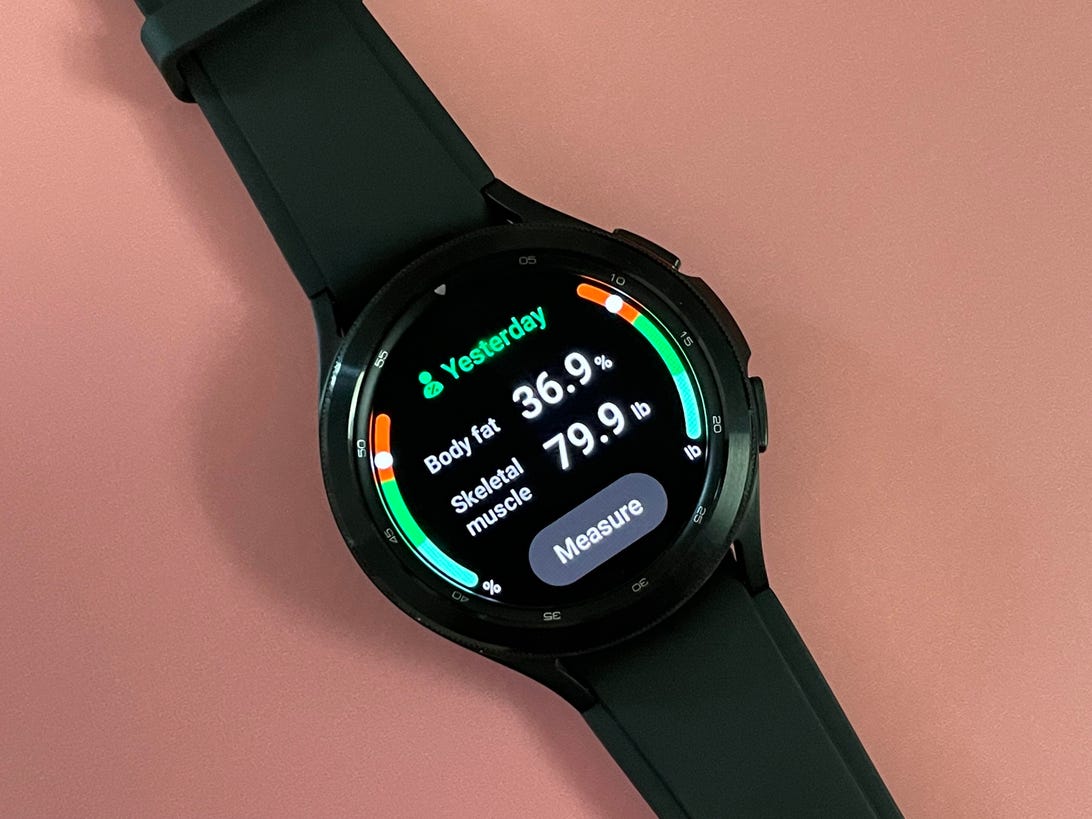
Scott Stein/CNET
Samsung Galaxy Watch 5
Samsung’s Galaxy Watch is one of the best smartwatches available for Android device owners, and rumors suggest a new Galaxy Watch 5 could be coming this year. It’ll likely have a round screen and Google’s Wear OS software just like the Galaxy Watch 4, but with a bigger battery and a temperature sensor. That’s according to rumors from blog SamMobile, which claims to have found the device’s battery in a regulatory filing, and Korean outlet ETNews.
These rumored upgrades suggest the Galaxy Watch 5 may be a refinement of the Watch 4 rather than a dramatic upgrade. But considering the Galaxy Watch 4 already does a lot of things right, from its smooth performance and vibrant screen to its wide array of health features, I’m fine with that.
One of CNET’s biggest criticisms was the watch’s battery life, and it sounds like the Galaxy Watch 5 might address this shortcoming. The bigger update we’re hoping to see, however, is tighter integration with Google’s apps and services. Such a change could give the Galaxy Watch 5 a more seamless Android experience, rather than feeling split between Google and Samsung’s ecosystems.
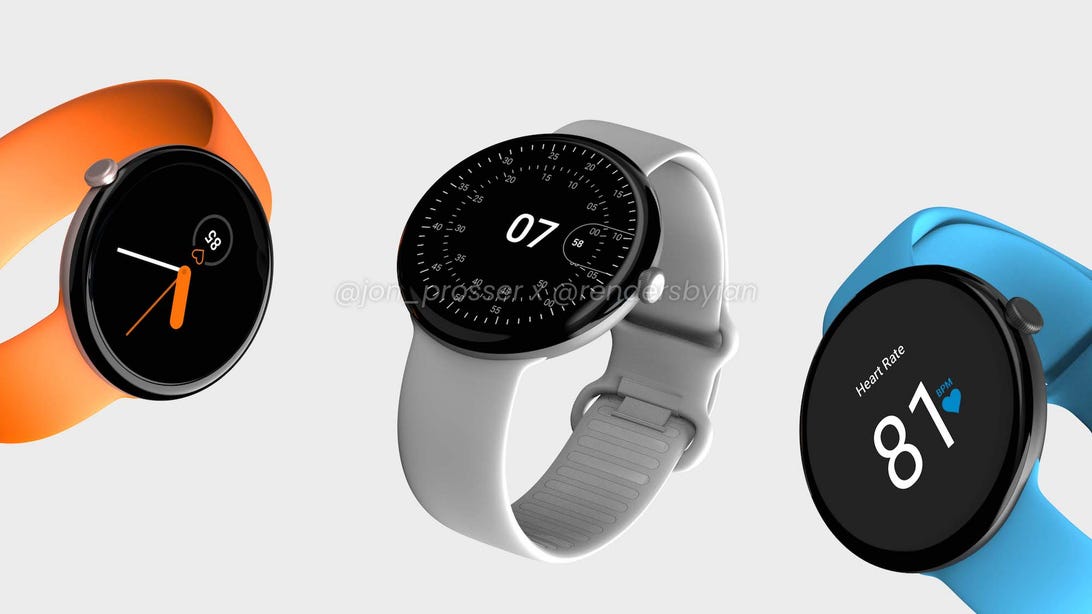
Jon Prosser/Front Page Tech
Google Pixel Watch
Google owns Fitbit and makes software for Android-friendly smartwatches, but it doesn’t have a smartwatch of its own. That could all change this year as Google is expected to release its first consumer smartwatch, according to reports from Insider and YouTuber Jon Prosser.
Details on the watch are scarce, but Prosser shared purportedly leaked marketing materials indicating it could have a round design. Considering other Wear OS watches are also round, it’s not much of a surprise. An old report from German blog WinFuture also suggests the Pixel Watch could come in three different versions. Insider says we can also expect heart rate monitoring and basic health tracking features.
At a higher level, I’m hoping Google’s smartwatch takes a page from its Pixel phones. Google has made its mobile devices stand out by giving them clever software features that are either exclusive to Pixel phones, or arrive on Pixel devices before trickling down to other Android devices. Google has an opportunity to do the same for smartwatches, potentially creating a blueprint for what the Android smartwatch experience should be like.
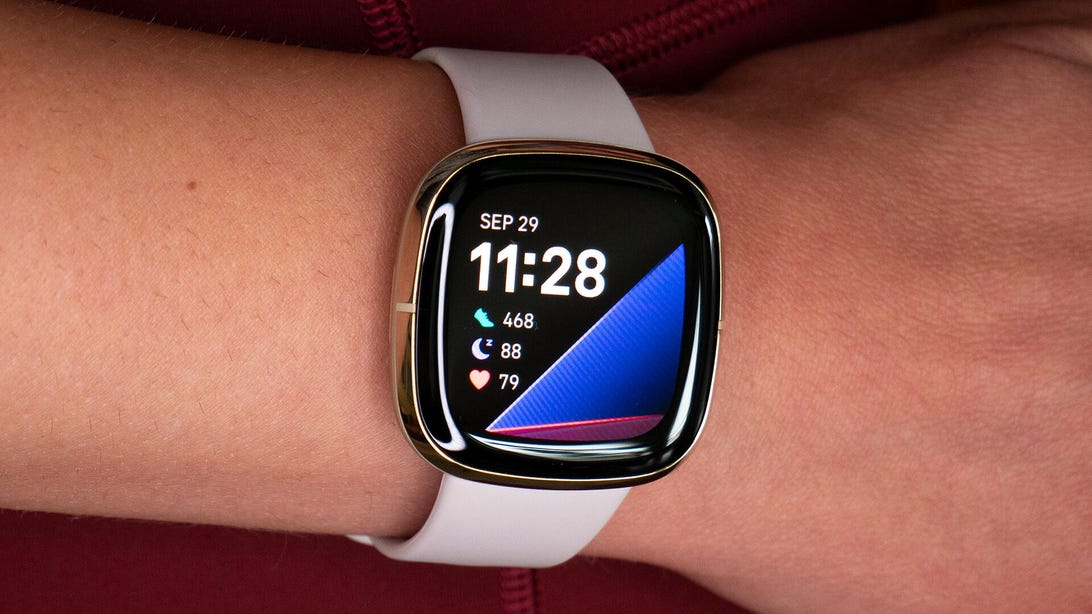
Lexy Savvides/CNET
Fitbit’s Wear OS Watch
Fitbit is working on a new premium smartwatch powered by Google and Samsung’s new Wear OS software, CNET’s Scott Stein reported last year. It’ll likely have high-end features that might even be an upgrade from the Fitbit Sense, the company’s most expensive watch, along with cellular connectivity and Google’s apps.
It would be a big step forward for Fitbit, which currently sells smartwatches that run its own Fitbit OS software. While I’ve always appreciated Fitbit’s wide selection of health features, detailed sleep tracking and long battery life, I’ve always felt its software could use some work. The experience doesn’t feel as polished as the software on watches from Apple and Samsung, and there aren’t as many apps. But that could all change with Wear OS.
Yet Fitbit might not be completely abandoning its Fitbit OS either. A next-generation version of the Fitbit Versa and Fitbit Sense watch may be in the works according to 9to5Google, which wouldn’t run on Wear OS.
Only Apple, Samsung and Fitbit truly know what products are in their respective pipelines. But whatever their plans may be, health monitoring will likely continue to be a big focus for the smartwatch industry at large. Current smartwatches can already track an assortment of data points about our bodies, from how much time we spent asleep to our resting heart rate and blood oxygen saturation. Experts believe making better sense of such data is a big part of where wearable devices are going next.
